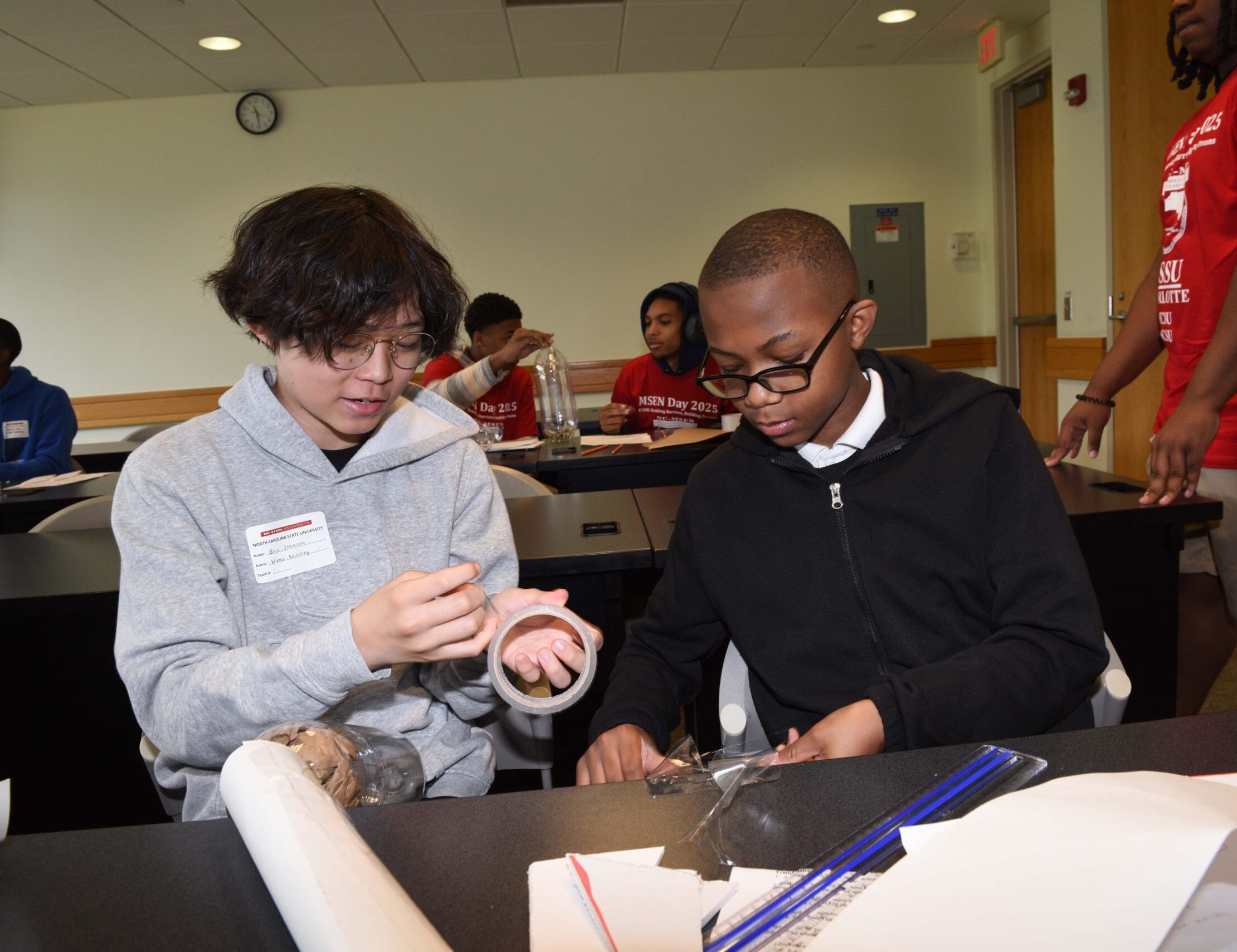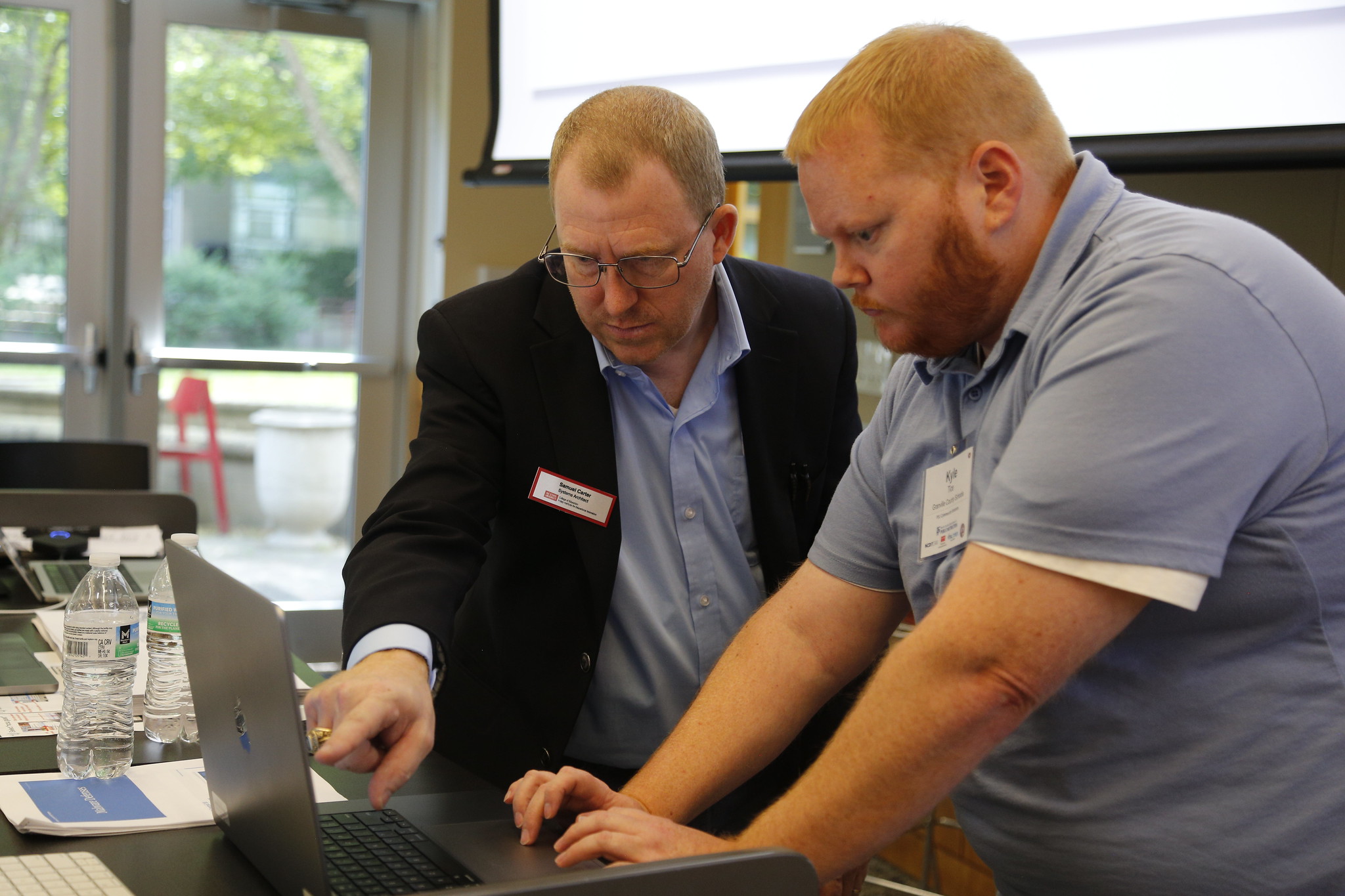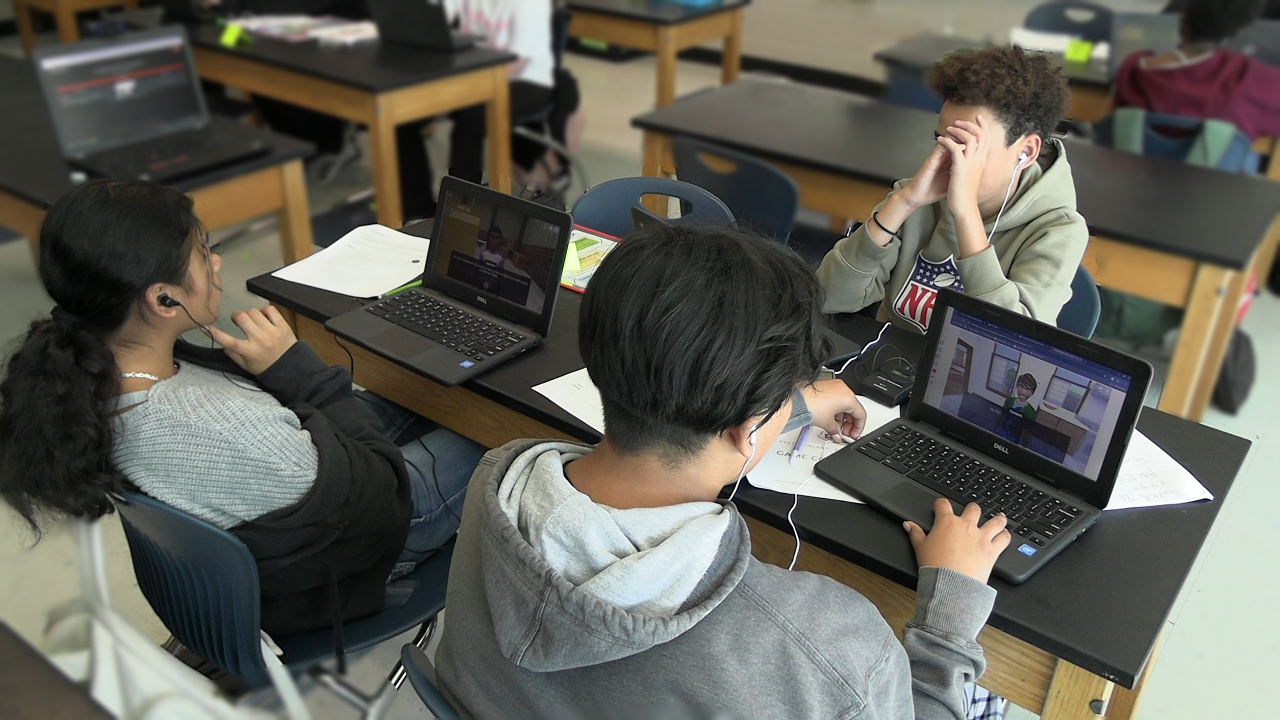New Literacies Collaborative Facilitates Cross-Cultural Student Virtual Exchange On Adolescent Mental Wellness

As we emerge from the COVID-19 pandemic, increased attention is being given to student mental health. Last year, a National Center for Education Statistics survey showed that more than two-thirds of public schools reported an increase in the percentage of students seeking mental health services from school since the start of the pandemic. This urgency is reflected by the United States Department of Education‘s recent award to the North Carolina Department of Public Instruction—a $17 million grant to increase mental health support for public school students. Centering student voices to address these global health and wellness gaps, the New Literacies Collaborative (NLC) at the Friday Institute for Educational Innovation facilitated a cross-cultural student virtual exchange between Wake Early College of Health and Sciences (WECHS) in Raleigh, North Carolina, and Bundesrealgymnasium (BRG) Traun in Traun, Austria, that focused on adolescent mental wellness across national contexts.
“The virtual exchange’s focus on adolescent mental wellness is particularly poignant right now,” said Marie Himes, director of the NLC. “First, we’re emerging from a pandemic with renewed and new understandings of the importance of having a handle on the public health landscape globally. The research that the WECHS and BRG Traun students cited in their discussions during the exchange underscored the need for this [adolescent mental health] to be a global emphasis right now for advocates and allies of adolescents and also for adolescents themselves.”
Students from WECHS are participating in this virtual exchange as part of WECHS Health Equity Advocates Learning & Solving (H.E.A.L.S.), a student volunteer program at the school led by instructional coach Jody Paramore. The initiative utilizes the NLC’s inquiry-to-action process—PBI Global. Student participants in WECHS H.E.A.L.S. are identifying and working to solve a health science challenge aligned with the United Nations’ Sustainable Development Goal (SDG) 3: Good Health and Well-Being through an equity lens.
BRG Traun joined the virtual exchange through a connection with Mackenzie Lamb, a Fulbright foreign language teaching assistant at BRG Traun and a former NLC intern. Lamb recognized the different ways schools operated in the U.S. and Austria with regard to adolescent wellness support for students and thought it could be insightful for all participants.
“Austrian students learn a lot about a wide variety of countries, including the United States, but the opportunity to connect directly with students across the Atlantic provided a deeper level of learning,” said Lamb. “This partnership allowed the BRG Traun students to hear directly from students in the American school system, gain new perspectives on adolescent mental health and practice their English skills with native speakers.”
The virtual exchange was designed to inspire and inform WECHS students’ compelling questions in the PBI Global inquiry-to-action cycle and to guide BRG Traun and WECHS students in investigating, surfacing and comparatively analyzing the adolescent mental wellness landscape across national contexts.
The Exchange
During the cross-cultural student virtual exchange in January, approximately 60 students introduced themselves via Padlet and then shared and compared issues related to adolescent mental wellness in Austria and the United States via FlipGrid. For their asynchronous video conversations, students shared research findings from sources, such as the World Health Organization, the University of Vienna and the U.S. Department of Health and Human Services, on important mental health issues facing adolescents, including anxiety disorders and depression. They also discussed how students’ mental wellness is being supported in their schools.
“It made me realize how people, like the students in Austria, are not very different from us, and we share similar lifestyles,” said Gregory Sachan, a junior at WECHS. “Mental health issues really are affecting teens globally.”
BRG Traun students also found more similarities than differences in their exchange with the WECHS students.
“It was interesting and exciting to work with students from a different country and get to know how they feel,” said Sophia Kührer, a student at BRG Traun. “American and Austrian students face similar mental health problems and also have very similar takes on how to prevent them.”
One key difference that emerged, though, for students and educators was the way mental health and wellness was addressed in schools in the two different countries.
“American culture is generally very open, so students’ mental health appears to be discussed quite frequently at WECHS,” said Lamb. “Austrians are often a bit more reserved and discuss difficult topics with close friends, so conversations surrounding mental health are not as prevalent in the school environment. This seems to be changing, though, as mental health becomes a greater challenge for adolescents worldwide and is more frequently discussed in the media.”
At WECHS, most initiatives to support mental wellness come from the school staff, whereas some of these initiatives are student-led at BRG Traun. In the North Carolina school, social and emotional learning (SEL) sessions are held for students on how to deal with stressful times of the year and to learn strategies to work through them.
“The mental well-being of our students includes having a good relationship with them, so having these intentional practices where teachers, counselors and other support staff can hear from their students and everybody gets a chance to talk and get to know each other…all of that is going to be beneficial to their emotional wellness at school,” said Paramore. “We’re trying to do those things on all fronts with students.”
In Traun, the school hosts a student-led program called “Reden Hilft,” which means “talking helps.” At every grade level, there are students who have signed up to be a compassionate listener for other students who have felt or feel stressed about school-related issues. These student listeners have completed an introductory psychology course with the school’s psychologist, so they have emerging skills and tools to support their peers in appropriate and informed ways.
Sachan thinks WECHS could learn something from Traun’s student-led program that could be helpful for the students at his school, especially for younger students who are separated from the older students on a different campus. He said younger students could learn a lot from older student mentors, including strategies to help them in school and how to balance school with other commitments and interests.
What’s Next
The exchange is only the first part of WECHS H.E.A.L.S.’ PBI Global. WECHS students are connecting with a local community health center to amplify their understanding around local holistic wellness and public health gaps. Students will then be developing compelling questions that drive their research around SDG 3 and mental wellness. They will present their findings at a showcase later this spring. Students will also be taking social action in response to their inquiry findings and toward meeting SDG 3 targets.
“Making a sustainable, scalable difference is about listening and adapting and iterating so that whatever solutions are put forward are responsive to community needs and norms,” said Himes. “Engaging in virtual exchange is one avenue that affords students with opportunities to hear cross-cultural perspectives and share their own. And, as part of PBI Global, these perspectives give nuance and add complexity to students’ inquiry.”
About the Friday Institute
The Friday Institute for Educational Innovation advances K-12 education through innovation in teaching, learning and leadership by bringing together students, teachers, researchers, policymakers and educational professionals to foster collaborations that improve education for all learners. The Friday Institute for Educational Innovation is part of NC State’s College of Education, one of the leading land-grant colleges of education in the nation.
- Categories:


